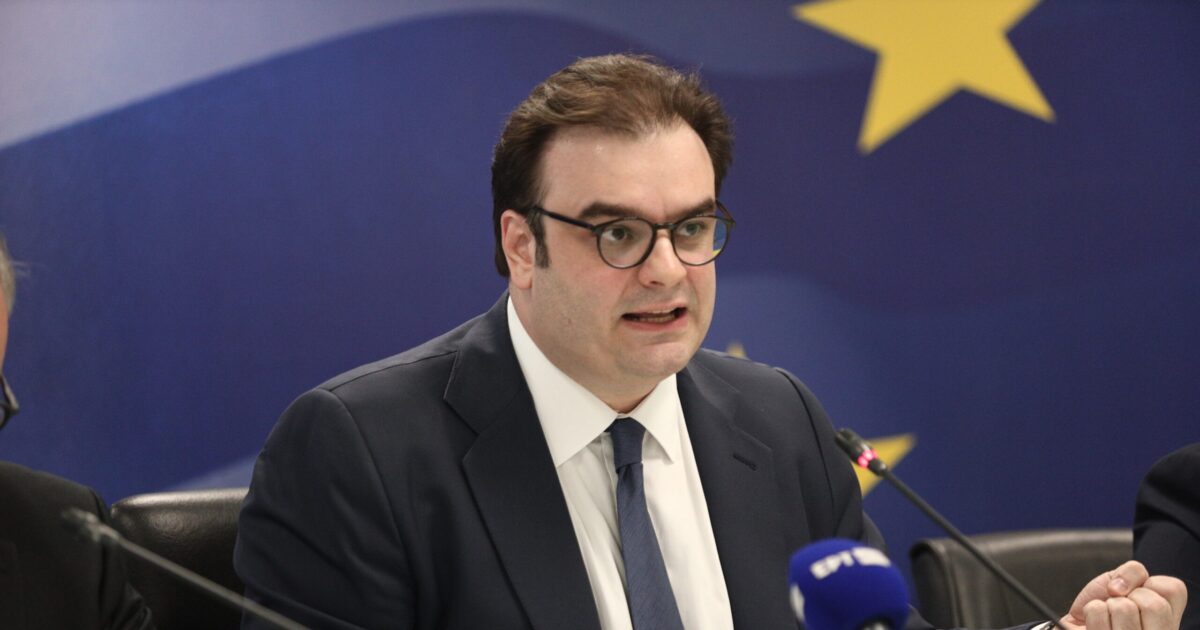Issues of international taxation as well as the duties of green and digital transition were raised in the debate between the Minister of Finance, Kyriakou Pierrakakisand the climate commissioner, zero emission balance and EU net growth, WOPKE Hoekstra, while referring to the expected single end of EU to cheap parcels coming from Asia.
Kyriakos Pierrakakis’ discussion with the EU commissioner revolved in the great performance of Greece which between 2021 and 2022 reduced the so -called VAT vacuum from 17.5% to 13.7%, while both officials in their statements emphasized the importance of pillar 1 and the pillar. Multinational companies pay the share of taxes they attribute to them, thereby promoting justice and stability in the tax system.
In the same context, the issue of the ongoing EU on -side was ongoing on the “small parcel” missions through e -commerce, a measure aimed primarily at Asia’s retail sales.
In addition, the Energy Tax Directive was discussed, stressing the importance of this legislation in promoting a more green and more viable framework for EU climate targets.
The mechanism for border carbon adaptation (MSPA), and the process of simplifying it is currently underway, was also put on the table. MSPA is expected to contribute decisively to climate change, while ensuring the competitiveness of industries exposed to carbon leakage.
In statements following the meeting, the Minister of National Economy and Finance pointed out that “the latest developments are intensifying geopolitical instability and creating a climate of uncertainty in the world economy.”
“Greece,” the minister added, “has been on tariffs from the outset and in favor of free trade that ensures better prices for consumers, boosting competition and optimizing world production based on the comparative advantage of each country.”
Mr Pierrakakis stressed that Greece supports the Commission in difficult negotiation and clarified that “the European Union must move in the direction of strategic autonomy, enhancing the sustainable development and adaptability of our economies”.
This debate, as the minister told the Commissioner, is particularly timely, while the thought of taxing digital services is matured, while the European Union is proceeding with the initiative to impose a special processing fee of 2 euros for cheap parcels derived mainly from Asian countries.
“With the Commissioner we discussed how Europe will combine environmental ambition and realism,” Mr Pierrakakis said on the issue, stressing that “this, for countries with particular island geography such as Greece, which has embraced the green transition, must be done through policies that take into account the social and economic conditions.”
The government of Kyriakos Mitsotakis, the minister said, has promoted a series of green tax incentives and utilizes modern tools for the evaluation of environmental reforms. And he cited the Commission’s initiatives which he supports through policies for:
- Simplifying tax legislation
- Enhance the effectiveness of tax authorities
- widening tax base and fighting tax evasion
“Greece today does not resemble the country of crisis. It is internationally recognized as a positive example, thanks to the digital transformation of the tax administration, “the Minister of National Economy said in his statements, stating that” the creation of a stable, and tax -friendly taxpayer, remains a key priority “.
Mr. Pierrakakis referred to the fiscal results in which the country’s steady course is reflected:
- In the primary surplus of 4.8% of GDP – almost twice the target – and a total budget surplus of 1.3%
- Reduce VAT (VAT GAP) in Europe – from 17.5% in 2021 to 13.7% in 2022 – one of the largest reductions in the EU
“Greece is steadily growing on solid fiscal bases, reinforces the prospects of its citizens and proceeds with a determination to a fairer and sustainable European future for all,” said Mr Pierrakakis.
